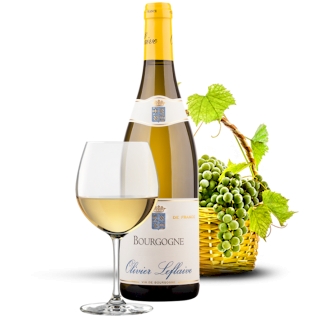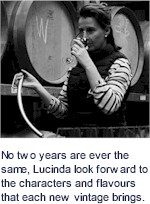


Lucinda Vineyard overlooks Knox’s Hill, a benign old volcano, grown to ancient red Ferrosols. The rich fertile volcanic soils, very fertile and high in organic matter, play an important role in the quality and characteristics of fruit. South Gippsland’s cool climate allows for a long ripening period, ideal for the development of complex and flavoursome wines. The enduring philosophy at Lucinda is that You can’t make good wine from bad grapes. It's very important when growing grapes that everything about the viticulture is spot on and reflects the soil, climate and aspect of the vineyard. But it’s the variations in seasons which bring each vintage alive with immense flavours and aromas. No two years are ever the same, Lucinda look forward to the new flavours each vintage brings.

It’s a beautiful time in the vineyard when the buds are bursting and the foliage is emerging after being dormant through the long wet winter. Vintages are assembled from a number of different clones, natural wild yeast ferments and single barrel bottlings. All Lucinda wines express the vineyard’s unique fruity, savoury and intense flavors. For the white wine enthusiasts, Chardonnay is the grape of choice, rich intensely fruity styles that appeal to all palates. For something a little more substantial in a red wine style, Lucinda Syrah is bursting with complexity and flavour. This cool climate Shiraz has a rich sweet spiciness on the palate, white pepper characters and a long lingering finish.
With only ten acres under vine, quantities of all wines are extremely limited, particularly at the top end of the range. The exclusive range of Lucinda Estate wines are highly sought by the most ardent aficianados and fine wine connoisseurs in the know.
Gippsland Cider Co is another Lucinda range, crafted with organically grown, Gippsland heritage cider apples and pears. Nothing but real fruit, crushed and naturally fermented, perfectly refreshing on a hot summer's day. When you visit Lucinda Estate, you will be warmly greeted by a sensational tasting of exquisite ciders and wines.

























